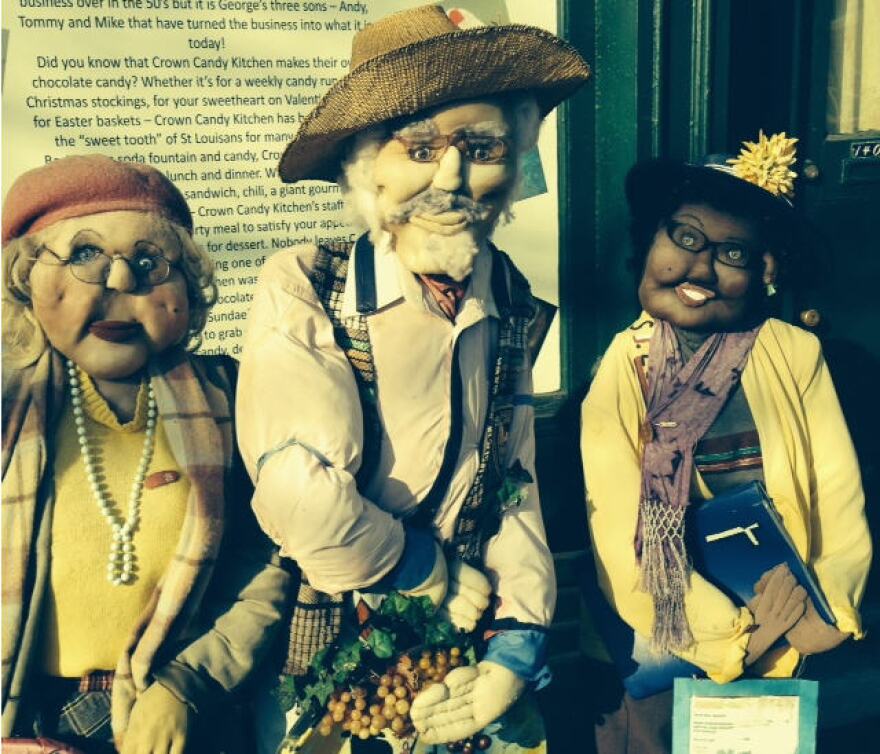The business district of the Old North neighborhood, near 14th Street and St. Louis Ave., is still a work in progress. New enterprises include a pet shop and a podiatrist’s office, but old ones continue to close. One recent casualty was the Old North Grocery Co-op. After opening with a lively neighborhood celebration in the summer of 2010, the co-op quietly locked its doors in mid-October.
The closing, even temporarily, as some hope, calls into question the co-op model for serving poor residents living in what’s known as "food deserts," neighborhoods where people lack convenient transportation, giving them limited access to full service supermarkets that sell fresh fruits and vegetables.
Sean Thomas, executive director of the Old North Restoration Group, says this turn of events doesn't necessarily mean the end of the co-op. The challenge he says is figuring out a business model that generates enough money to hire someone to run the store while remaining true to a mission of serving poor customers.
“It’s in the middle of transition and restructuring,” he says. “I’m convinced it will have a new life in some form.” One possibility, he says, is reopening as a sandwich shop and grocery store. But the store has no timetable yet for reopening, he says.
Some aren’t convinced the store will succeed without changing its pricing. William Burton, one owner of the 14th Street Art Gallery, has never shopped at the store. But he says he has heard many complaints that the prices were too high and its selections too limited.
"When you come in and set up shop in a community like this one, you’re supposed to do things that benefit the residents,” he says. “But if the prices are too high, then you are not helping the community.”
Even so, Burton isn’t about to give up on Old North. His business includes a gallery, hand-made jewelry and space art education programs. He and another artist, Robert Ketchens, hope activities at the gallery will lure people to Old North.
Thomas conceded that Burton had a point about the co-op's prices. “It’s an uphill battle to run a grocery store because of the tight (profit) margin, coupled with locals stores that have higher volume and can get lower prices from suppliers and pass the savings on to customers.”

But he takes issue with the perception that the store didn’t draw many local customers.
“There were a good number of neighborhood people who shopped at the co-op” he says, pointing to data showing that at least 500 low-income people bought goods there. “But it was difficult to have the full range of grocery products that people wanted. Some found it challenging to get everything they needed at the store.”
Having to shop elsewhere for certain food items gave some customers a disincentive to patronize the co-op. he says. But he insists that the store and Old North will survive.
“I’d say we’re coming out of a tough economy, and the neighborhood will pick up steam.”
Not that all of Old North has lost steam. At least one neighborhood landmark, Crown Candy Kitchen, 1401 St. Louis Ave., was lively as usual on a recent chilly but sunny December afternoon. Customers headed to Crown Candy Kitchen might have thought for a minute they were on a street corner in Jamaica. As they approached the store, they could hear the sound of reggae music. Still closer, they could see that the sounds were being made by a man wearing a colorful Rastafarian knit cap and tapping a set of steel drums. He introduced himself as Jamai-can Ray.

Some heading into the store liked what they heard enough to give donations to Ray. Even when no humans were around to listen, Ray played for an audience of his life-size characters made from stockings and cotton. He paused to introduces them, including “Ms. Brown, the church lady,” “Cocoa Joe,” “Ms. Mary Ann,” and “the unofficial mayor of St. Louis.”
Winking and pointing to the “mayor” and Ms. Ann, Ray cautions a visitor, “That’s his woman, so be careful what you say to her.”
Then he filled the air with music again. Some of the passers-by seem to welcome this diversion in a neighborhood where not much else is upbeat.





